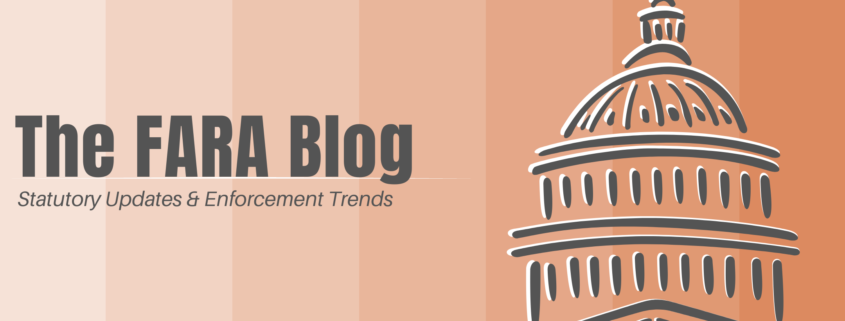The Foreign Agents Registration Act (“FARA”) has entered the news cycle more frequently lately and can trip up even sophisticated organizations. In simple terms, the FARA imposes disclosure requirements and other legal obligations on any individual or entity that becomes an “agent of a foreign principal” unless an exemption applies. Because of trends indicating more aggressive enforcement and potential changes in the regulatory landscape expected in the future, careful monitoring of developments in this arena is advisable.
The FARA is codified at 22 U.S.C. § 611 et seq. and its implementing rules are found at 28 C.F.R. § 5.1 et seq. Due to the fact that it is enforced and administered by Department of Justice (“DOJ”) FARA Unit, there are two main sources of formal interpretative guidance available: The FARA Unit’s advisory opinions, and frequently asked questions. Both of which can be a useful starting point to assist with interpretation and compliance, especially in today’s rapidly evolving landscape.
A few noteworthy examples of activities involving FARA include:
- The recent DOJ instruction of the law firm Sidley Austin to register under FARA, even though that entity was already registered under the Lobbying Disclosure Act (“LDA”). The FARA registration form is much more detailed that a typical LDA registration.
- Several non-profit organizations have voiced concerns about the breadth of the statute, and called for Congressional action to further refine the law.
- The DOJ issued an Advanced Notice of Proposed Rulemaking (“ANPRM”) to “solicit suggestions for any potential amendments to, or clarifications of, the current FARA implementing regulations.” They accepted comments until February 11, 2022. The expected Notice of Proposed Rule Making (“NPRM”) has not been issued yet. Stay tuned as that could be issued any time.
Fluet attorneys continuously monitor and stay up to date with all things FARA. Check back for more developments and considerations!


